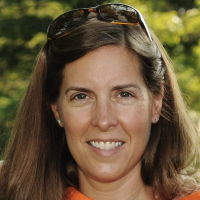Our Counselors Answered:
What is the best way to start researching colleges?
 Benjamin CaldarelliPartnerPrinceton College Consulting, LLC
Benjamin CaldarelliPartnerPrinceton College Consulting, LLC
What is the best way to start researching colleges?
The very best way to begin the college selection process is to start even before high school. This means arranging family trips to some major education centers like Boston, New York, Chicago, or LA where the focus does not have to be exclusively on seeing colleges, but students can have the opportunity to see a variety of types of colleges.
When a student reaches high school, he or she (and family) can begin an ongoing conversation with a counselor, either at school or privately, who can talk to them about their interests and values and expose themt to the best print and online resources.
 Benjamin CaldarelliPartnerPrinceton College Consulting, LLC
Benjamin CaldarelliPartnerPrinceton College Consulting, LLC
What is the best way to start researching colleges?
The very best way to begin the college selection process is to start even before high school. This means arranging family trips to some major education centers like Boston, New York, Chicago, or LA where the focus does not have to be exclusively on seeing colleges, but students can have the opportunity to see a variety of types of colleges.
When a student reaches high school, he or she (and family) can begin an ongoing conversation with a counselor, either at school or privately, who can talk to them about their interests and values and expose them student to the best print and online resources.
 Allen Regar
Allen Regar
What is the best way to start researching colleges?
The best way to start researching colleges is to speak with your school guidance counselor or college counselor. These individuals possess a wealth of information about the college search and application process. The one-on-one human interaction with them can provide significantly more meaningful information than utilizing a guidebook or a website. A good counselor should be able to paint a realistic picture of colleges that may be a good fit for you, based on the interaction(s) that you have with him. Additionally, they are able to guide you along the way when you become more deeply involved with the college search process. A guidebook cannot get to know you, but a college counselor can, and he or she should be able adjust what information to provide you as you move through the search process and learn more about what types of colleges you like and don’t like. And counselors are fast! They can provide you with excellent information immediately during a Q & A session — information that may take you hours to find on a website or in a guidebook.
Of course, how available a counselor is often depends on how many students are in his or her caseload. It may be up to you to take the initiative to set an appointment, rather than waiting for your counselor to set the appointment for you. That said, if you are in a district with counselors that are spread very thin, and if you have the financial resources to do so, use a Unigo counselor! The fee that you pay to chat with a Unigo counselor is *significantly* lower than you would pay to hire a private college counselor, which may run into the thousands — if not the tens of thousands — of dollars.
Regardless of your choice–using your guidance or college counselor or chatting with a Unigo counselor, the best means of starting your college search is to speak with the people who have dedicated years of their lives to becoming professionals in this field. They are the best “guidebooks” of all.
 Allen Regar
Allen Regar
What is the best way to start researching colleges?
The best way to start researching colleges is to speak with your school guidance counselor or college counselor. These individuals possess a wealth of information about the college search and application process. The one-on-one human interaction with them can provide significantly more meaningful information than utilizing a guidebook or a website. A good counselor should be able to paint a realistic picture of colleges that may be a good fit for you, based on the interaction(s) that you have with him. Additionally, they are able to guide you along the way when you become more deeply involved with the college search process. A guidebook cannot get to know you, but a college counselor can, and he or she should be able adjust what information to provide you as you move through the search process and learn more about what types of colleges you like and don’t like. And counselors are fast! They can provide you with excellent information immediately during a Q & A session — information that may take you hours to find on a website or in a guidebook.
Of course, how available a counselor is often depends on how many students are in his or her caseload. It may be up to you to take the initiative to set an appointment, rather than waiting for your counselor to set the appointment for you. That said, if you are in a district with counselors that are spread very thin, and if you have the financial resources to do so, use a Unigo counselor! The fee that you pay to chat with a Unigo counselor is *significantly* lower than you would pay to hire a private college counselor, which may run into the thousands — if not the tens of thousands — of dollars.
Regardless of your choice–using your guidance or college counselor or chatting with a Unigo counselor, the best means of starting your college search is to speak with the people who have dedicated years of their lives to becoming professionals in this field. They are the best “guidebooks” of all.
 Sarah ContomichalosManagerEducational Advisory Services, LLC
Sarah ContomichalosManagerEducational Advisory Services, LLC
What is the best way to start researching colleges?
The best way to start is by spending time on colleges’ website. I also recommend Fiske’s “Guide to Colleges” as well as “The Insider’s Guide to College”, our school or local library should have copies of both. In addition, find out from your high school if any recent graduates are attending the colleges you are interested in and try to get in touch with students either when they are visiting home or by Skype or email.
 Reecy ArestyCollege Admissions/Financial Aid Expert & AuthorPayless For College, Inc.
Reecy ArestyCollege Admissions/Financial Aid Expert & AuthorPayless For College, Inc.
What is the best way to start researching colleges?
Talk to your guidance counselor for advice and contact admissions experts for some ideas when you start your own research. Get copies or search the Internet for Princeton Review ratings, CRS (College Raking Service), Best Colleges, and any number of specific reports on engineering, arts, music, drama or other such schools. Be sure to have your checklist out to rate the schools based on your preferences. This is just the beginning!
 Joyce Vining MorganFounder and college counselorEducational Transitions
Joyce Vining MorganFounder and college counselorEducational Transitions
What is the best way to start researching colleges?
A general guide is one way. Some are very basic, and others more chatty – check them out at a big bookstore before you buy. General online search engines are similar – there are many, but the www.collegeboard.org is probably already on your radar. Then go to the college websites.
 Joyce Vining MorganFounder and college counselorEducational Transitions
Joyce Vining MorganFounder and college counselorEducational Transitions
What is the best way to start researching colleges?
A general guide is one way. Some are very basic, and others more chatty – check them out at a big bookstore before you buy. General online search engines are similar – there are many, but the www.collegeboard.org is probably already on your radar. Then go to the college websites.
 Tyler BurtonPresident Burton College Tours
Tyler BurtonPresident Burton College Tours
What is the best way to start researching colleges?
How you should begin researching colleges depends on what year in high school you are beginning your search. If you have time on your side and are a freshman or sophomore then enjoy surfing the internet to visit college websites and thumb through the college guides in your local book store or library. Look ahead to your family road trips and pick a school ti visit along the way. Learn the art of how to look at a college and venture into the elements of what will make a school a good fit for you.
If you are in the second half of high school then do what has been recommended, but turn up the heat. Attend college fairs and plan to take a college campus tour trip. Schedule a series of meetings with your school guidance counselor and attend college nights with your parents.
 Karen O’Neill, MSEdCounselorKSO College Counselling
Karen O’Neill, MSEdCounselorKSO College Counselling
What is the best way to start researching colleges?
There are so many amazing choices for students, that it may feel overwhelming at first, as you try to narrow your choices down to a manageable list. But here are some ideas about tackling this project.
1. Understand your choices based upon your financial resources. If your parents/guardians are helping you, ask them directly how much tuition is affordable.
2. What kind of weather do you prefer? As obvious as this question seems, it will help you immediately eliminate regions in our country if you love snow, or want to be in sunny weather all the time.
3. Decide how large a role religion and or politics play in your life. Is it important that your religion is well represented on campus? Or do you want to be in a politically progressive environment? By reading the descriptions in College Handbooks, you can find the answers to these questions about schools.
4.Do you any visible or invisible special needs? Do you want to be on a LGBTQ friendly campus? The answers to these questions are important lifestyle issues, and will help you find yourself on a campus that may be responsive to your lifestyle needs.
5. Standardized test scores: Your scores are also a factor in eliminating schools from your search. Where are you qualified to apply?
6. Expenses and distance. traveling to and from school to home, especially during peak holiday travel periods can be expensive. If you and your folks cannot afford a lot of travel expenses, then plan on applying to schools that are easy to get home.
 Felice KobrickOwner, College Consultant,Kobrick College Consulting, LLC
Felice KobrickOwner, College Consultant,Kobrick College Consulting, LLC
What is the best way to start researching colleges?
The web is chock full of information–both from primary sources (the colleges themselves) and from secondary sources (fiske, us news & world report, etc.). Sites like Unigo and collegeprowler also provide direct advice from students on campus–you can’t beat that!
What is the best way to start researching colleges?
The best way to start researching colleges is by determining the geographic region that you think that you would be most interested in exploring for the next four years (three if you decide to take your junior year abroad). Often students under estimate the impact of the geography and the weather differences between what they are custom to and what they would face at the college. Another factor to consider is how far away the student would be from ones family. Sometimes students are not at all affected by this. Other times, students choose to stay close to their family for support but eventually (usually after the first year away) they find their own space within that community and don’t depend on their family as much for the remainder of their time at college. The next step would be to consider ones talents, do you shift potential grades, the curriculum that they have taken, and test scores as well as any other qualities that they could reveal to the school that the stuff that the college would consider admirable treats that would lead them to admitting the student. Once a student has an idea where they stand they should then research to the colleges very thoroughly because every colleges are different and every admissions office decides who to admit in different ways and so thorough research once you get into this point is absolutely about most important. If the student does his/her homework then the possibilities for where they may attend their college are endless.
What is the best way to start researching colleges?
The best way to start researching colleges is by determining the geographic region that you think that you would be most interested in exploring for the next four years (three if you decide to take your junior year abroad). Often students under estimate the impact of the geography and the weather differences between what they are custom to and what they would face at the college. Another factor to consider is how far away the student would be from ones family. Sometimes students are not at all affected by this. Other times, students choose to stay close to their family for support but eventually (usually after the first year away) they find their own space within that community and don’t depend on their family as much for the remainder of their time at college. The next step would be to consider ones talents, do you shift potential grades, the curriculum that they have taken, and test scores as well as any other qualities that they could reveal to the school that the stuff that the college would consider admirable treats that would lead them to admitting the student. Once a student has an idea where they stand they should then research to the colleges very thoroughly because every colleges are different and every admissions office decides who to admit in different ways and so thorough research once you get into this point is absolutely about most important. If the student does his/her homework then the possibilities for where they may attend their college are endless.
 Rohit GoyalIvy League CounselorHarvard University
Rohit GoyalIvy League CounselorHarvard University
What is the best way to start researching colleges?
By imagining the type of school where you will be happy after joining it.
What is the best way to start researching colleges?
The best way to start researching colleges is by determining the geographic region that you think that you would be most interested in exploring for the next four years (three if you decide to take your junior year abroad). Often students under estimate the impact of the geography and the weather differences between what they are custom to and what they would face at the college. Another factor to consider is how far away the student would be from ones family. Sometimes students are not at all affected by this. Other times, students choose to stay close to their family for support but eventually (usually after the first year away) they find their own space within that community and don’t depend on their family as much for the remainder of their time at college. The next step would be to consider ones talents, do you shift potential grades, the curriculum that they have taken, and test scores as well as any other qualities that they could reveal to the school that the stuff that the college would consider admirable treats that would lead them to admitting the student. Once a student has an idea where they stand they should then research to the colleges very thoroughly because every colleges are different and every admissions office decides who to admit in different ways and so thorough research once you get into this point is absolutely about most important. If the student does his/her homework then the possibilities for where they may attend their college are endless.
 Carita Del ValleFounderAcademic Decisions
Carita Del ValleFounderAcademic Decisions
What is the best way to start researching colleges?
Start by visiting campuses in your area of different sizes, curriculum and type (private verse public). Once you have done a few of these, you begin to identify things you liked and didn’t like, majors or programs that really got you excited, and location issues that will now aid you in developing a more personal and precise college possibilities list.
 Nancy MilneOwnerMilne Collegiate Consulting
Nancy MilneOwnerMilne Collegiate Consulting
What is the best way to start researching colleges?
How you research colleges depends on your personal preferences. If you love your computer, you can surf the web. If you value other’s opinions, start asking anyone you respect for their thoughts on their alma maters. If you love holding a book in your hands, head to the library or bookstore and you’ll find plenty to choose from. You may find it helps to focus on areas of academic interest and schools that specialize in that field. Size and location are also common points of distinction made early in the process. While all this research can be fascinating, it can also feel overwhelming; that’s what college counselors are for. Don’t hesitate to ask for help is sorting through the information; staying organized at this time is important and you can’t ignore your high school studies.
 Zahir RobbCollege CounselorThe Right Fit College
Zahir RobbCollege CounselorThe Right Fit College
What is the best way to start researching colleges?
There are any number of search engine’s out there that can help with this process, namely the one offered through College Board. You start by entering some criteria that will be used to refine your search and slowly but surely you can start to whittle down your choices. Unfortunately, with roughly 4,000 colleges represented, the list can still be quite large when all is said and done. This is why I recommend working with a college advisor, as they can help point you in the right direction and use their personal experience to find you that right fit college.
 Mark GathercoleUniversity AdvisorIndependent University Advising
Mark GathercoleUniversity AdvisorIndependent University Advising
What is the best way to start researching colleges?
Start by first looking inward and figuring out what you want in a college; what’s important to you – what are the three or four essential qualities that a college must have in order to attract you? Then you know what you’re shopping for, which makes it more likely that you’ll find what you want. Then use the resources, both online and in print, to do your research. Use mostly impartial sources, along with university websites.








